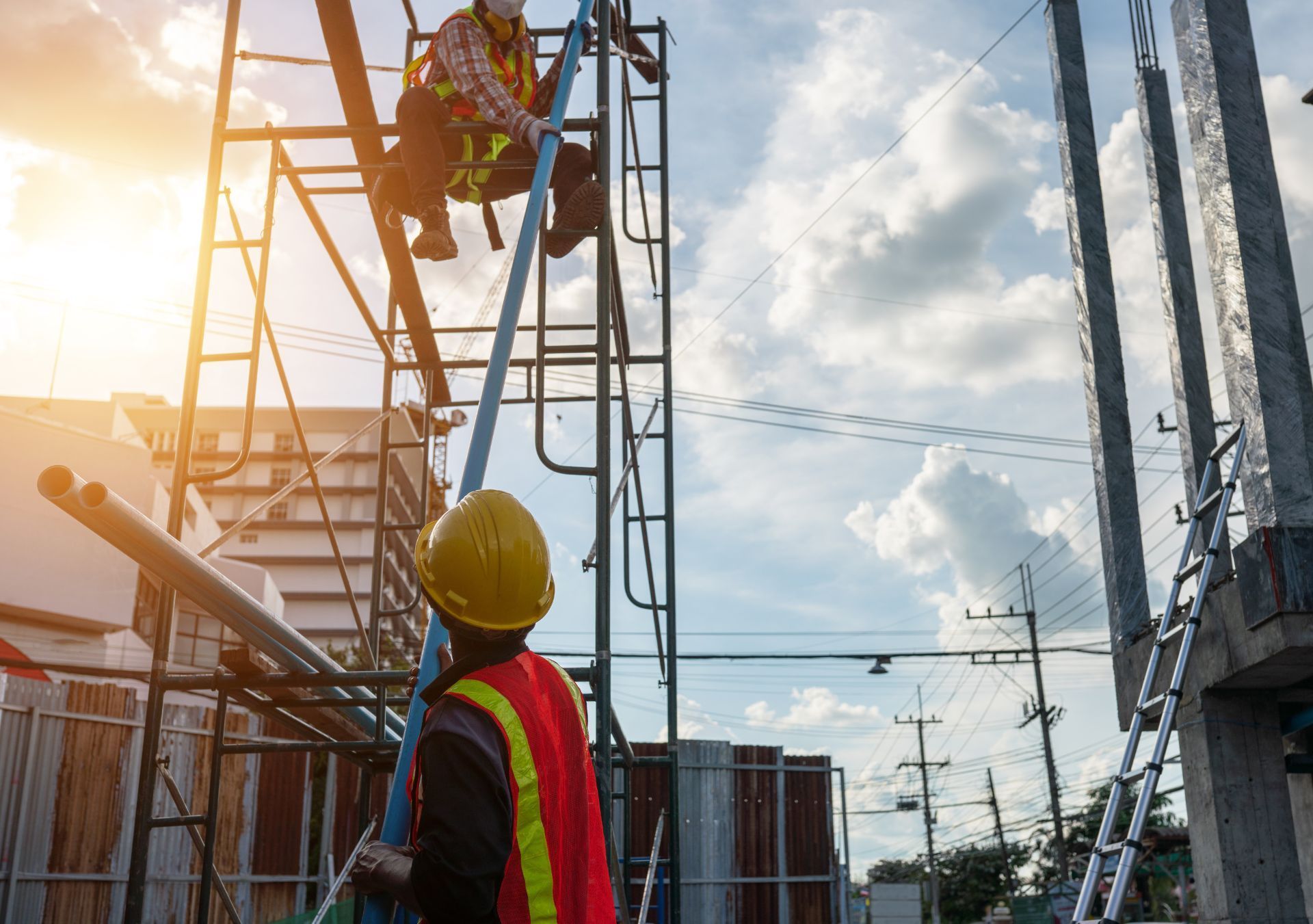
We're an independent insurance agency in Texas
Our experienced team offers services for both residential and commercial properties.With over 25 years of experience in the industry.
Contact Us
6600 Lyndon B Johnson Fwy Ste 220, Dallas, TX 75240, United States
(214) 253-0570
quotes@thephoenixinsurance.com
Working Hrs : 9.30am to 5.30pm

Most Common Business Policies
Index
Contact Us
In the world of construction and contracting, understanding financing mechanisms such as bid bonds is essential for both contractors and project owners. In Texas, bid bonds serve as a financial safety net ensuring that contractors fulfill their project obligations. This guide provides a comprehensive overview of bid bonds, outlining their significance in construction projects, the process of obtaining them, associated costs, legal implications, and frequently asked questions. Whether you are a contractor looking to secure projects or an owner seeking assurance, this guide will equip you with the necessary knowledge about bid bonds in Texas.
Understanding Bid Bonds in Texas
Bid bonds are a specific type of surety bond used in the construction industry. They guarantee that a contractor will enter into a contract if their bid is accepted, thereby providing protection for the project owner or developer. A bid bond is generally required for larger projects to ensure that the bid chosen is backed financially.
Definition of Bid Bonds
A bid bond is a legally binding agreement between three parties: the contractor (principal), the project owner (obligee), and the surety company that issues the bond. It assures the obligee that the principal will perform the contract if awarded. If the principal fails to sign the contract or provide the necessary performance bond after winning the bid, the surety is responsible for compensating the project owner for any financial losses incurred, up to the bond amount.
Typically, the bid bond amount is a percentage of the total bid value. In Texas, this percentage often ranges from 5% to 10% of the bid amount. This requirement not only fortifies the integrity of the bidding process but also adds a layer of accountability for contractors. The financial backing provided by the surety company ensures that project owners can trust the bidding process, knowing that there is a safety net in place should a contractor default.
Importance of Bid Bonds in Construction Projects
Bid bonds play a crucial role in the construction industry, particularly in large-scale projects. They provide project owners with assurance that the selected contractor is serious about their bid and has the financial capability to complete the project. This reassurance can lead to smoother project execution and encourage competition among contractors. The presence of bid bonds can also help to foster a more professional environment, as contractors are motivated to present their best bids knowing that they are held accountable for their commitments.
Moreover, bid bonds contribute to the overall health of the construction industry by weeding out unreliable contractors. By requiring a bid bond, project owners can minimize the risk of hiring contractors who may lack the necessary resources or commitment to fulfill their contractual obligations. This process not only protects the interests of the project owner but also promotes a level playing field for reputable contractors who are prepared to meet their obligations. Additionally, the requirement for bid bonds can encourage contractors to maintain strong financial practices and build solid relationships with surety companies, further enhancing their credibility in the marketplace.
In Texas, the use of bid bonds is not just a regulatory requirement; it is also a strategic tool that can influence the dynamics of the bidding process. Contractors who consistently provide bid bonds may find themselves more competitive, as project owners often prefer to work with those who demonstrate financial responsibility and reliability. This can lead to a reputation for excellence in the industry, where contractors who prioritize their bonding capabilities are more likely to secure contracts and foster long-term partnerships with clients.

The Process of Obtaining Bid Bonds in Texas
Obtaining a bid bond is a straightforward process, but it requires careful attention to detail and a thorough understanding of the requirements involved. Below, we outline the key steps involved in obtaining bid bonds in Texas.
Eligibility Criteria for Bid Bonds
Before applying for a bid bond, contractors must meet specific eligibility criteria set by the surety company. These criteria generally include:
- Demonstrating a strong credit history and financial stability.
- Providing relevant experience in the construction industry.
- Having a valid business license and insurance coverage.
Surety companies may also evaluate the contractor's past project performance, including the successful completion of projects within the timeline and budget. Additionally, some sureties may look for a history of compliance with local regulations and safety standards, as these factors can significantly influence a contractor's reputation and reliability in the eyes of potential clients.
Step-by-Step Guide to Apply for Bid Bonds
- Gather Necessary Documentation: Collect all relevant business documents, financial statements, and contractor’s license information.
- Choose a Reputable Surety Company: Research and select a surety company that specializes in bid bonds within your industry.
- Submit Your Application: Complete the application provided by the surety company and submit it along with the required documents.
- Review and Assessment: The surety will review your application, assess your financial capability, and may conduct an interview.
- Obtain Your Bid Bond: If approved, the surety will issue the bid bond, which you can submit as part of your bid package.
During the review and assessment phase, it is common for surety companies to request additional information or clarification regarding certain aspects of your application. This may include detailed financial records, proof of previous projects, or even references from past clients. Being prepared to provide this information promptly can help expedite the process and demonstrate your commitment to transparency and professionalism.
Moreover, understanding the nuances of the bid bond process can greatly enhance your chances of approval. Contractors should familiarize themselves with the specific requirements of the projects they are bidding on, as different projects may have varying bond requirements. This knowledge not only aids in the preparation of a robust application but also positions contractors as informed and reliable partners in the eyes of the surety company.
Costs Associated with Bid Bonds in Texas
The cost of a bid bond can vary based on several influencing factors, including the contractor's credit rating, the bond amount, and the financial stability of the contracting business. Knowing these cost elements is essential for contractors seeking to manage their budgets effectively.
Factors Influencing the Cost of Bid Bonds
Several factors contribute to the overall cost of bid bonds, including:
- Credit Score: Contractors with higher credit scores typically qualify for lower premiums.
- Experience Level: Established contractors with a proven track record may receive more favorable rates.
- Bond Amount: The larger the bond required, the higher the total cost, as percentages are often applied to the bond size.
How to Estimate the Cost of Your Bid Bond
To estimate the cost of a bid bond, contractors should consider the bond percentage set by the surety company, which often ranges from 1% to 3% of the total bond amount. Contractors can calculate the expected cost using the following formula:
Estimated Cost of Bid Bond = Total Bid Amount x Bond Percentage
For instance, if a contractor bids $100,000 and the bond percentage is set at 2%, the estimated cost of the bid bond will be $2,000. This anticipation allows contractors to budget accordingly and avoid surprises during the bidding process.
In addition to the factors already discussed, contractors should also take into account the specific requirements of the project they are bidding on. Certain projects, especially those funded by government entities, may have stricter bonding requirements, which could influence the overall cost. Furthermore, the time frame for obtaining the bond can also affect pricing; a rush request may incur additional fees. Therefore, it is advisable for contractors to plan ahead and secure their bid bonds well in advance of the bidding deadline to avoid any last-minute complications.
Another important consideration is the potential for fluctuations in the market that could impact bond pricing. Economic conditions, such as changes in interest rates or shifts in the construction industry, can lead to variations in the cost of surety bonds. Contractors should stay informed about these trends and work closely with their surety providers to understand how external factors might influence their bond costs. By maintaining open communication with surety companies, contractors can also explore options for reducing costs, such as bundling multiple bonds or improving their creditworthiness over time.
Legal Implications of Bid Bonds in Texas
Understanding the legal aspects surrounding bid bonds is crucial to ensuring compliance and avoiding potential pitfalls. This section addresses the rights and responsibilities of all parties involved and the consequences of violations.
Rights and Responsibilities of the Contractor
Contractors holding a bid bond have rights that include:
- The right to receive prompt payment upon contract completion, provided all obligations are met.
- The right to contest any claims made against them through the bid bond.
At the same time, contractors have responsibilities, including fulfilling the terms of the contract if awarded the project and informing the surety of any material changes throughout the process. Additionally, contractors must maintain open communication with the project owner to ensure that any issues are addressed promptly, thus fostering a collaborative working environment. This proactive approach can help mitigate misunderstandings and enhance the likelihood of a successful project outcome.
Consequences of Bid Bond Violations
Failure to meet bid bond agreements can result in serious consequences. If a contractor does not honor their bid, the surety may pay the project owner the bond amount, which can lead to:
- Damaged reputation within the industry.
- Increased difficulty in obtaining future surety bonds.
- Potential legal action from the project owner seeking damages.
Consequently, contractors must execute their obligations diligently to avoid these repercussions. Furthermore, the financial implications can extend beyond immediate penalties; contractors may also face increased insurance premiums and stricter scrutiny from lenders. This situation can create a ripple effect, impacting not only the contractor's current projects but also their long-term business viability. Therefore, it is essential for contractors to understand the full scope of their obligations and the potential ramifications of failing to meet them, reinforcing the importance of thorough preparation and adherence to contractual agreements.

Frequently Asked Questions about Texas Bid Bonds
As with any financial product, contractors often have many questions regarding bid bonds. Below are some commonly asked questions to clarify crucial aspects.
Can a Bid Bond be Cancelled?
In most cases, a bid bond cannot be canceled once submitted with a bid unless the contractor withdraws the bid within the timeframe allowed by the project owner. Canceling a bid bond can lead to legal disputes or loss of eligibility for the project, so contractors should exercise caution and consult with their surety company before taking any action. It's important to understand that bid bonds are designed to protect the interests of the project owner, ensuring that only serious and qualified bidders are considered. Therefore, the implications of canceling a bond can extend beyond immediate financial concerns, potentially damaging a contractor's reputation in the industry.
What Happens if the Principal Fails to Honor the Bid Bond?
If the principal fails to honor the bid bond after winning the contract, the surety is responsible for covering the financial loss incurred by the project owner, subject to the limits stipulated in the bond. This financial obligation, however, does not absolve the contractor. The surety may pursue the contractor for recovery, placing the contractor in a precarious financial position. Additionally, the failure to honor a bid bond can lead to a loss of trust among clients and stakeholders, which can have long-term repercussions for a contractor's business. It is crucial for contractors to maintain open lines of communication with their surety and ensure they fully understand the terms and conditions of the bond to avoid any misunderstandings that could result in financial liability.
Tips for Managing Bid Bonds in Texas
Effectively managing bid bonds is vital for contractors aiming to enhance their chances of success in winning bids while minimizing risks. Here are some practical tips for smooth bid bond management.
How to Avoid Common Bid Bond Mistakes
Contractors can avoid several pitfalls by being aware of common bid bond mistakes:
- Failure to review the bid bonding requirements specified in the project documentation.
- Underestimating the required bond amount, which can lead to complications if the bid is accepted.
- Neglecting proper communication with the surety about financial changes.
Moreover, it is essential for contractors to thoroughly understand the specific terms and conditions of the bid bond. Each project may have unique stipulations that could affect the bond's validity or the contractor's obligations. For instance, some projects may require a performance bond in addition to a bid bond, which can complicate the financial landscape if not anticipated. By ensuring that all project documentation is meticulously reviewed, contractors can avoid misunderstandings that could jeopardize their bids.
Strategies for Reducing Bid Bond Costs
Contractors can employ a variety of strategies to potentially reduce the costs associated with bid bonds:
- Improving credit scores by paying debts on time and reducing outstanding liabilities.
- Building strong relationships with surety agents who understand your business.
- Obtaining multiple quotes to ensure the best rates are secured from various surety companies.
In addition to these strategies, contractors should consider leveraging their track record of successful project completions as a bargaining chip in negotiations with surety companies. A history of on-time project delivery and satisfied clients can significantly bolster a contractor's credibility, potentially leading to lower bond premiums. Furthermore, participating in industry associations or networks can provide valuable insights into best practices for managing bonds and can connect contractors with reputable surety providers who may offer more favorable terms.
By strategically managing bid bonds, contractors can not only reduce costs but also enhance their overall competitive edge in the contracting environment. Being proactive in understanding the nuances of bid bonds can lead to better financial planning and more successful project outcomes.
In conclusion, understanding and effectively managing bid bonds is crucial for contractors operating in Texas. By following the steps outlined in this guide, contractors can navigate the complexities of bid bonds with confidence while positioning themselves for greater success in the competitive construction industry.

